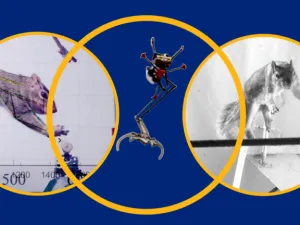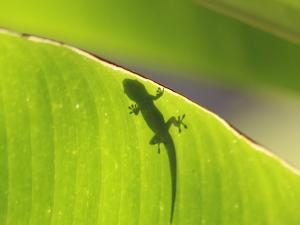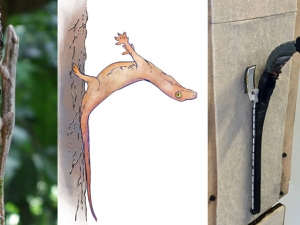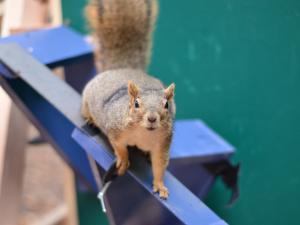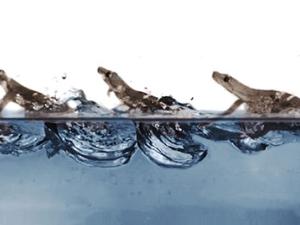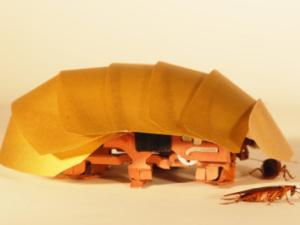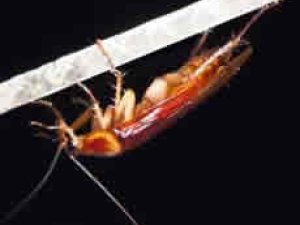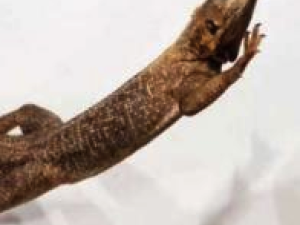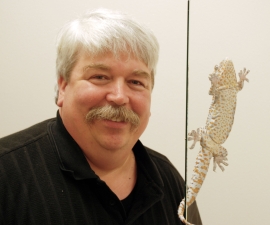

Research Bio
Robert Full's primary interests reside in the area of comparative biomechanics and physiology. His research program quantifies whole animal performance in general and locomotion in particular as it relates to an animal's structure, physiology, and behavior. His research group uses biomechanical, computer simulation (dynamic musculo-skeletal modeling), physical modeling (robot and artificial muscle construction), isolated muscle, biochemical, whole-animal exercise physiology and field-tracking techniques to seek general design principles for species which have evolved different solutions to the problems of locomotion and activity in general. The study of arthropod, amphibian and reptilian locomotion continues to offer an excellent opportunity for comparison. Animals such as crabs, cockroaches, ants, beetles, scorpions, centipedes, geckos and salamanders show tremendous variation in body shape, gas transport system, leg number, musculoskeletal arrangement and mode of movement.
Diversity enables discovery. They use these "novel" biological designs as natural experiments to probe for basic themes concerning the relationship between morphology, body size, energetics, dynamics, control, stability, maneuverability, maximum speed and endurance. An understanding of the diverse biological solutions to the problems of locomotion contributes to the development of a general theory of energetics, neuro-mechanics and behavior. They collaborate closely with engineers, mathematicians and computer scientists by providing biological principles to inspire the design of multi-legged robots, artificial limbs and muscles, novel control algorithms, and self-cleaning, dry adhesives.
Research Expertise and Interest
energetics, comparative biomechanics, arthropod, adhesion, comparative physiology, locomotion, neuromechanics, biomimicry, biological inspiration, reptile, gecko, amphibian, robots, artificial muscles
In the News
No Robot Can Match a Squirrel’s Ability To Leap From Limb to Limb — Until Now
Berkeley Talks: Learning From Nature to Design Better Robots
These geckos crash-land on trees but don’t fall, thanks to their tails
Leaping squirrels! Parkour is one of their many feats of agility
Acrobatic geckos can even race on water’s surface
American Academy of Arts and Sciences elects nine Berkeley faculty members
The American Academy of Arts and Sciences today announced the election of 213 new members, including nine UC Berkeley faculty members.
Cockroach inspires robot that squeezes through cracks
Our fear and disgust that cockroaches can quickly squeeze through the tiniest cracks are well-justified, say UC Berkeley scientists.
Stealth behavior allows cockroaches to seemingly vanish
Cockroaches, known for their stealth behavior, have a strategy up their sleeve only recently discovered by UC Berkeley biologists. They are able to quickly disappear under ledges by flinging themselves off at full speed, grabbing the edge with hook-like claws on their hind legs, and swinging like a pendulum to land upside-down underneath.
Leaping lizards and dinosaurs inspire robot design
Undergraduate and graduate students teamed up with biologist Robert Full to study how lizards use their tails when leaping. What they found can help design robots that are more stable on uneven terrain and after unexpected falls, which is critical to successful search and rescue operations.
Featured in the Media
Geckos use four separate strategies to skitter over water, and a new study from the lab of integrative biology professor Robert Full details the mechanics involved. Describing the phenomenal acrobatic skills of flat-tailed Asian house geckos, Professor Full says: "They can run up a wall at a meter per second, they can glide, they can right themselves in midair with a twist of their tail and rapidly invert under a leaf running at full speed. And now they can run at a meter per second over water. Nothing else can do that; geckos are superheroes." Jasmine Nirody and Judy Jinn, who worked on the project as doctoral students, discovered that the geckos accomplish the feat by harnessing surface tension; slapping and paddling the water to create air pockets that help keep them afloat; using their smooth, water-repellent skin to plane; and swishing their tail as an alligator does, which not only propels them, but lifts and stabilizes them as well. "All are important to some extent, and geckos are unique in combining all these," Professor Full says. Link to video. For more on this, see our press release at Berkeley News. The Scientist featured this news as their "Image of the Day". Other stories on this topic have appeared in dozens of sources, including UPI, Nature, Popular Science, Inside Science, Tech Times, Geek, and the PBS Newshour YouTube channel--link to video.

